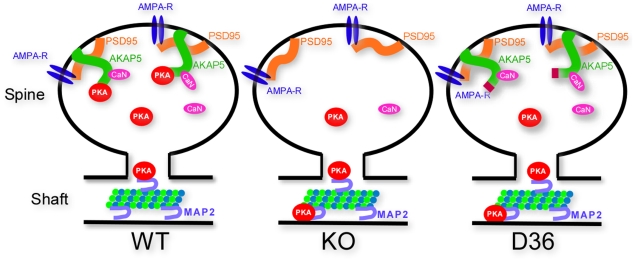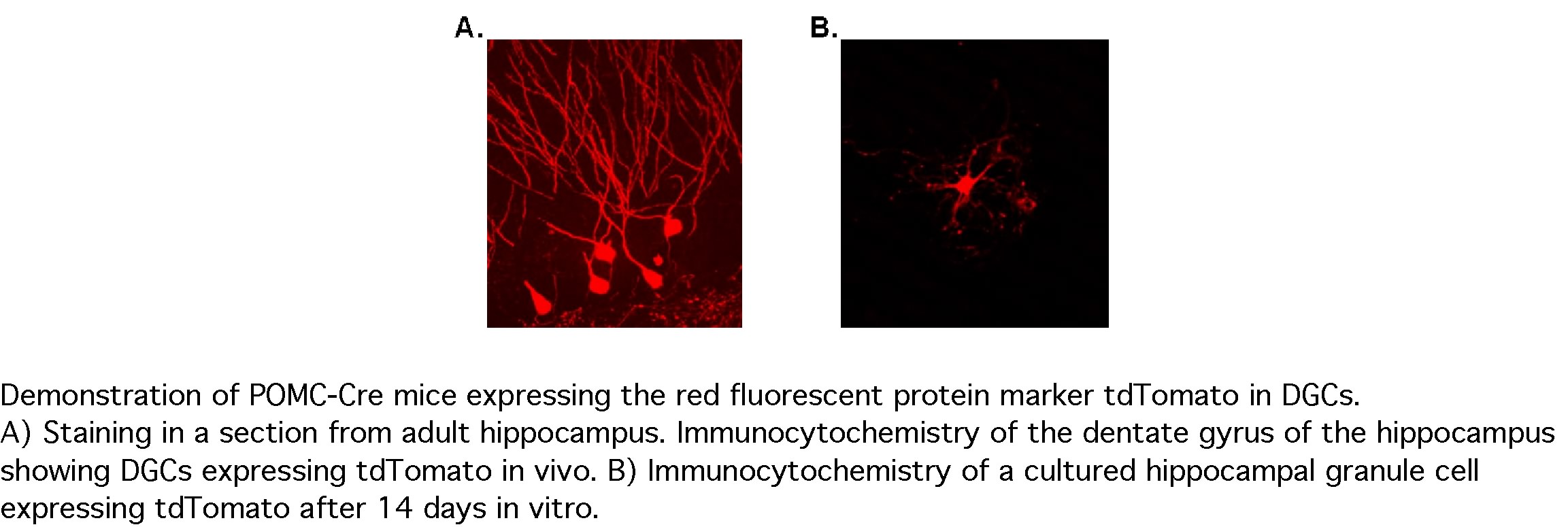 |
Memory and Learning |
||
Cartoon from Weisenhaus et al PLoS One Research Article Showing a Current Model for AKAP5 Function |
AKAP150 KO mice cause de-localization of PKA-RIIalpha in the hippocampus and leads to behavioral effects on learning that Mike Weisenhaus is studying. |
|
|
|
| We are currently studying the role of PKA localization in learning and memory processes. PKA is localized into cellular microdomains by A-Kinase Anchoring Proteins (AKAPs), and we are trying to study the role of PKA localization in specific cell types where it is known that PKA plays a role in learning and memory. Mouse genetics is a powerful tool to target and isolate specific cell types for study. For example, the hippocampus is important for learning and memory, and the cells that receive information in the hippocampus are called dentate granule cells (DGCs). By expressing fluorescent markers specifically in these cell types, we can study them biochemically and electrophysiologically. We are currently studying these cells to define the cellular and molecular mechanisms whereby PKA leads to the changes thought to underly learning and memory. |

